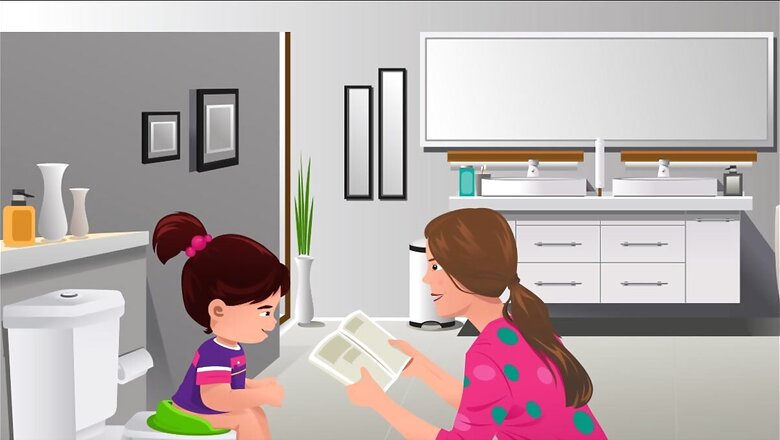
views
While toilet hygiene is an important aspect of personal and public health, it is also a nuanced thing, influenced by cultural norms and preferences. Different cultures may have different ways of using the toilet, such as squatting or sitting, using water or paper, washing or wiping, and so on. These differences can sometimes lead to misunderstandings, conflicts, or even health risks when people from different backgrounds share the same toilet facilities.
Some Common Cultural Differences in Toilet Hygiene Practices
One of the most obvious differences in toilet hygiene practices is whether people squat or sit on the toilet. Squatting is more common in Asian, African, and Middle Eastern countries, while sitting is more prevalent in Western countries. Squatting has some advantages, such as reducing the pressure on the pelvic floor muscles, preventing constipation and haemorrhoids, and facilitating bowel movements. However, squatting can also pose some challenges, such as balancing, cleanliness, and accessibility for people with disabilities or injuries.
Another difference is whether people use water or paper to clean themselves after defecation. Water is more common in Muslim, Hindu, and Buddhist cultures, where it is considered more hygienic and respectful than paper. Water can also help prevent irritation, infection, and odour. However, water can also cause some problems, such as wetting the floor or the clothes, wasting water, and contaminating the water supply if not used properly.
A third difference is whether people wash or wipe their genitals after urinating. Washing is more common in Muslim and Hindu cultures, where it is considered a religious duty and a sign of purity. Washing can also help prevent urinary tract infections and bad smells. However, washing can also cause some issues, such as drying out the skin, spreading bacteria, and requiring a lot of water.
How to Teach Children to Respect Diverse Customs while Maintaining Hygiene Standards
As parents, teachers, and caregivers, we have a responsibility to teach children about toilet hygiene and how to respect diverse customs while maintaining hygiene standards. Here are some tips on how to do that:
Educate children about the different ways of using the toilet and why they exist. Explain that different cultures have different beliefs and traditions that influence their toilet hygiene practices. Emphasise that there is no right or wrong way to use the toilet, as long as it is done safely and cleanly.
Encourage children to be curious and respectful of other cultures. Encourage them to ask questions and learn from others who have different toilet hygiene practices. Avoid making judgments or jokes about other cultures’ toilet hygiene practices. Model positive attitudes and behaviours towards diversity.
Provide children with the necessary tools and facilities to practise their preferred toilet hygiene method. Provide children with access to toilets that suit their needs, such as squatting toilets or sitting toilets, bidets or hoses, paper or towels. Ensure that the toilets are clean and well-maintained. Provide children with soap and water to wash their hands after using the toilet.
Instruct children how to prevent infections and diseases from poor toilet hygiene. Teach children how to use the toilet properly, such as flushing after use, closing the lid before flushing, not touching the toilet seat or bowl with their hands, not throwing anything into the toilet that does not belong there, etc. Teach children how to clean themselves properly after using the toilet, such as wiping from front to back, using enough water or paper to remove all traces of faeces or urine, drying themselves thoroughly with a clean towel or tissue paper, etc. Teach children how to dispose of used paper or towels in a sanitary way, such as putting them in a bin or a bag.
Reinforce good toilet hygiene habits with praise and rewards. Praise children for practising good toilet hygiene habits and respecting diverse customs. You can even reward children with stickers, or privileges for following the rules and being considerate of others.
Breaking the Taboo: Talking About Toilet Hygiene
Toilet hygiene is a topic that’s important but can sometimes feel a bit uncomfortable to talk about. It’s something that can be different depending on where you’re from and what you’re used to. But you know what? It’s also a chance for us to show how wonderful our differences can be and to learn how to be kind and considerate of others.
When we teach kids about toilet hygiene, we’re not just talking about washing hands and cleaning up. We’re teaching them about something bigger – about being respectful of others and their surroundings. It’s like saying, “Hey, we’re all in this together, and let’s take care of each other.”
Harpic, India’s leading brand in the lavatory care segment, has spent years normalising conversation around toilet hygiene through thought provoking advertisements and campaigns. It has also joined hands with News18 to create Mission Swachhta aur Paani, which has championed the cause of inclusive sanitation, equality for all genders, abilities, castes and classes and the strong belief that clean toilets are a shared responsibility.
Mission Swachhta aur Paani serves as a platform where stakeholders across government, NGOs, activists, doctors, user groups and many more can come together and talk about the issues and nuances of toilet access and toilet hygiene in India. By having these conversations, and by getting the word out, Harpic and News18 aim to both educate and engage with a larger audience.
This means you, your family, your social circle. What we talk about matters. Each conversation you have about toilet hygiene and toilet access not only makes the problems and their solutions clearer, but also breaks the taboo. Help us take the conversation forward to a Swachh and Swasth Bharat here.













Comments
0 comment